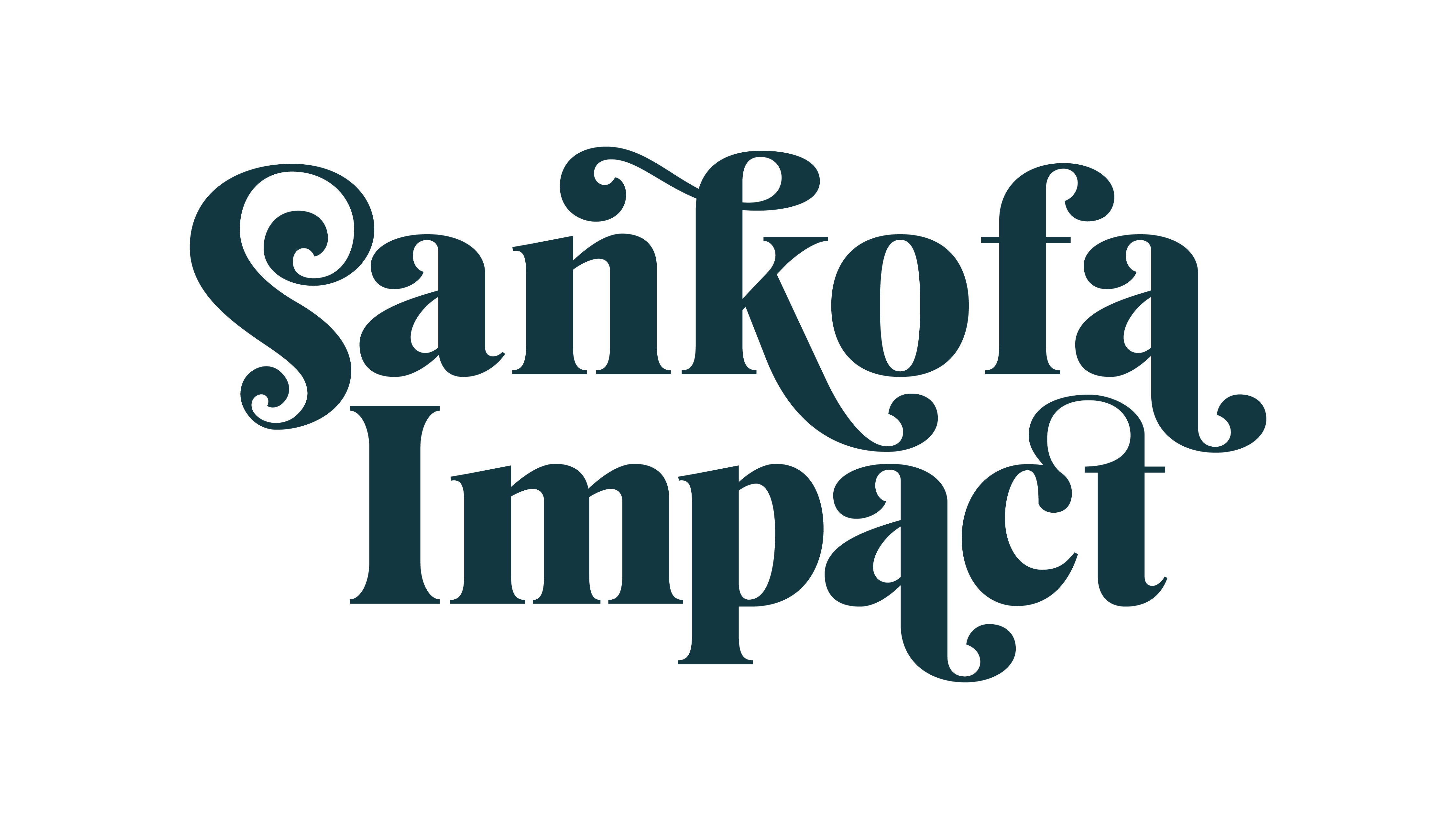We have long known that there are both connections and divisions between the Jewish and Black communities. There are connections throughout history, such as a Jewish travel guide that inspired Victor Green to create the Green Book or the cross cultural work of Jewish and Black students during Freedom Summer. Then there are the divisions. The subtle way that anti-Black racism exists and persists in the Jewish community. The not-so-subtle way that some Black leaders espouse openly antisemitic statements.
Mark Twain once said, “History doesn’t repeat itself, but it often rhymes.” The more I learn about the connections between the Black and Jewish communities, the more I know that while the divisions are real, the way anti-Black and antisemitic oppression rhymes can lead to a greater sense of shared humanity and common purpose.
In March 2022, Sean Goode, former Executive Director of CHOOSE 180 was a guest speaker during Leadership Tomorrow’s Health and Wellbeing Challenge Day. I had the privilege of facilitating a conversation between Sean and fellow community advocate, Dr. Ben Danielson about the power of turning problems into possibilities. Shortly after, we spoke about the possibility of bringing Sean’s staff at CHOOSE 180 on a Pilgrimage to the South. In addition, Sean wanted to involve the Seattle Seahawks on the trip and the plan was to embark after their game in Germany against the Tampa Bay Buccaneers in Munich. We believed the idea of exploring history in Germany and drawing connections to our shared history in the United States could be a powerful experience. So in November 2022, Sankofa Impact’s Community Relations Manager, Nathan Bean, Sean, and myself traveled to both Germany and the American South.
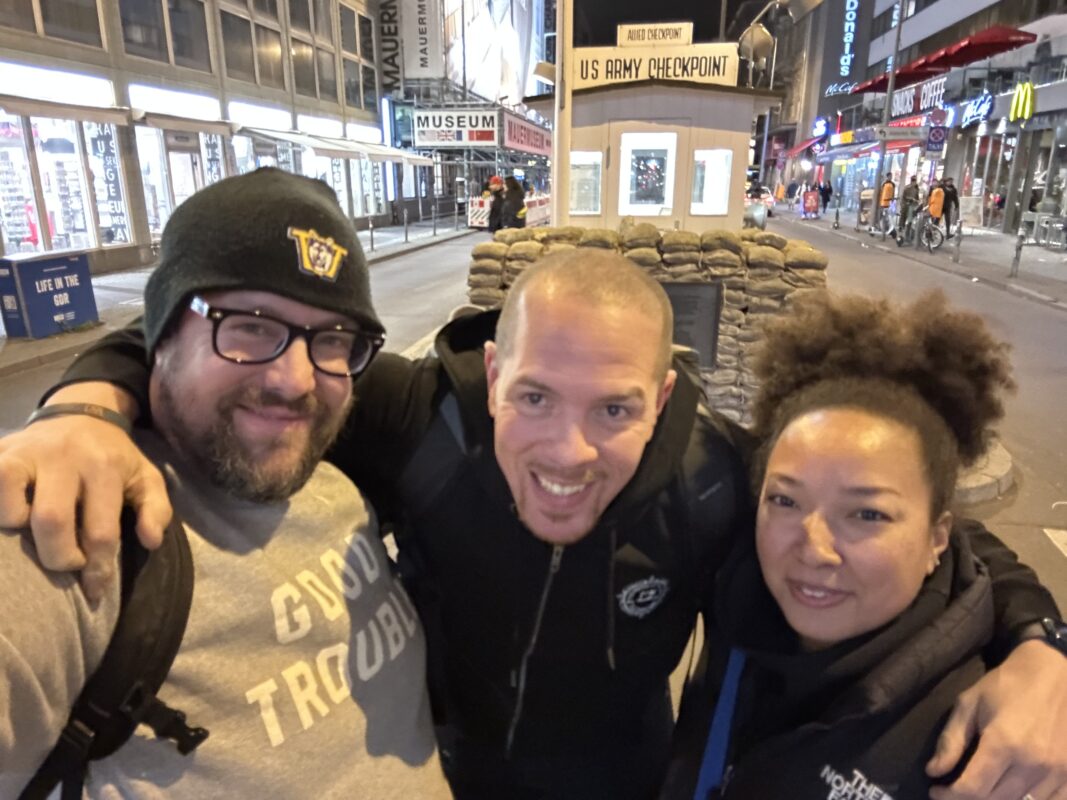
Our time in Germany centered on studying the liquidation and extermination of the Jewish people during World War II and uncovering connections to the Jim Crow South and the Pacific Northwest. The trip required endurance and a strong desire to lean into painful history. Somehow, we managed to laugh often, grow together, and experience culture at a moment when drawing connections between these histories is of vital importance. After twelve trips through the American South on our Pilgrimages, it is rare for me to be in the position similar to our participants. I was reminded that the people on a Pilgrimage to the South are just as important as the places you visit. I was happy to have such good company.
Our first full day in Germany, we visited Dachau concentration camp and learned about the horrors committed there when it was in operation. We drew obvious comparisons to places like the internment camp in Minidoka, ID, where my grandfather was wrongfully held during World War II.
On our third day, we traveled to Nuremberg and stood at the site of the rally grounds for the Nazi party. It was beyond chilling to occupy space where Adolph Hitler stood. We noted the conspicuous absence of statues celebrating Nazi leaders, unlike the South which remains home to countless statues celebrating Confederate leaders.
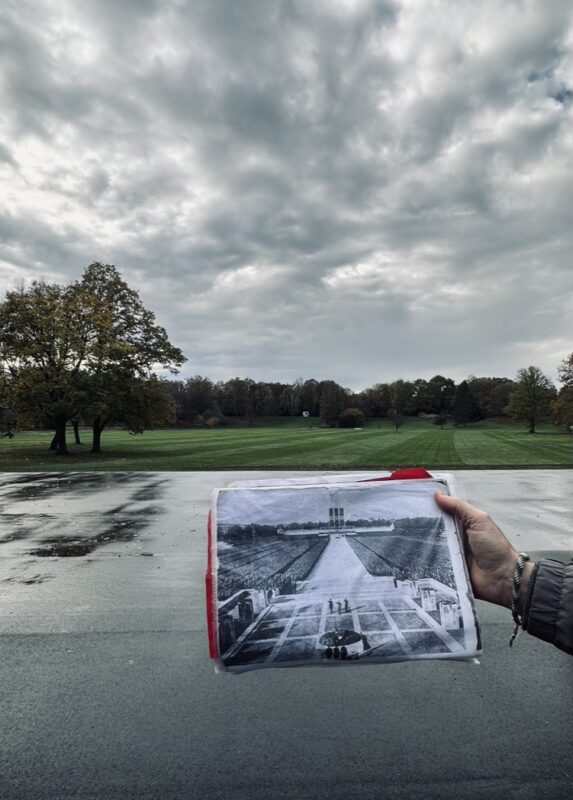
On our fifth day, we journeyed by train to Berlin and stood in sobering awe at the Memorial for the Murdered Jews of Europe, reminiscent of similar feelings we have felt at the National Memorial for Peace and Justice in Montgomery, AL. We learned how Nazis studied ‘Black codes’ in the South and America’s forced removal of Indigenous people. The Third Reich leveraged these lessons to subjugate the Jewish people and others during their time in power. There were frankly more connections than we could have anticipated.
On one of our last days, we visited the House of the Wannsee Conference, twenty minutes outside of Berlin. We learned of this location during a visit with the Holocaust Center for Humanity (HCH) on 2nd Ave in Seattle. We are so grateful for Dee, Brenda, and the amazing work of HCH. The visit to Wannsee was immensely powerful for us. This is the lakeside villa where Nazis planned the accelerated annihilation of European Jews, now a memorial museum. One of the artifacts on display are the 15 pages of meeting minutes in which the “final solution” is outlined. We were struck by the banality. Seeing the words. The simple plan of it all. The humanity and lack thereof. It was moving beyond words. A reminder that oppression is oppression. That across cultures and atrocities, there are horrors that rhyme. There are acts of resistance that demonstrate the resilience of a people. There is so much to learn when we shed and celebrate differences.
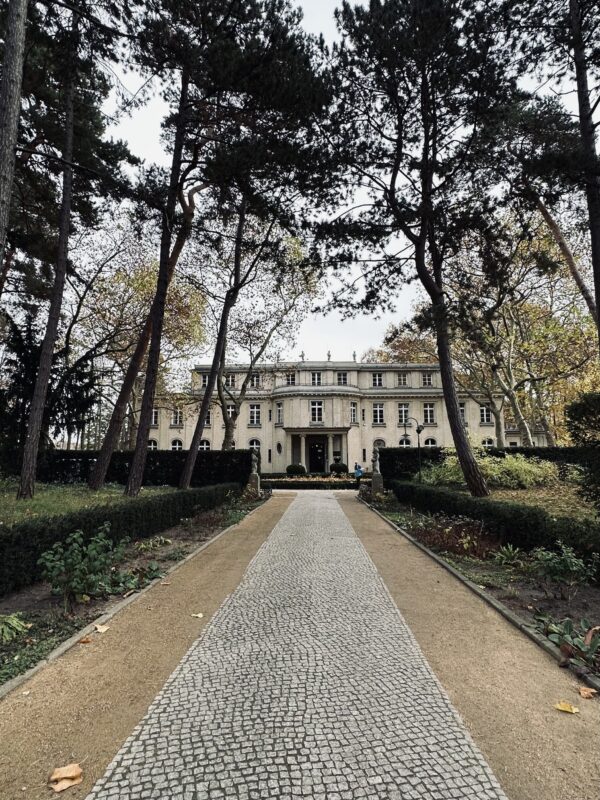
After our week in Germany, we boarded a plane from Munich to New Orleans, where the CHOOSE 180 staff of 25 employees met us to begin our Pilgrimage to the South. We visited many spaces of Black history that most American students will never experience. I have been reflecting on the way Germany asks its students to learn and interrogate what happened during World War II. There were countless student groups at Dachau. Our guide in Nuremberg talked about how every German student must visit a concentration camp before graduating high school. The Stolpersteine project, in Berlin especially, means one can scarcely walk a block without being reminded of the past by the small plaques that detail the lives disrupted because of the Holocaust. This has been largely driven by a mix of public and private sector interest and government mandated curriculum changes.
We wonder how things might look in the Pacific Northwest and United States if we were to approach our shared history in a similar way? What if, instead of banning books and AP classes, our young people were required to visit places like Montgomery? What if we sought to memorialize the loss and family separation of Black people in America? How might reconciliation and reparation look if we all shared a common memory? Of course, we wonder what role organizations like Sankofa Impact, CHOOSE 180, Leadership Tomorrow, Holocaust Center for Humanity, and the Seattle Seahawks can play in all this? The answers to these questions are within all who choose to ask them. We must be the force that drives change for good. For what is right. It is our responsibility to ensure the liberation of all people.
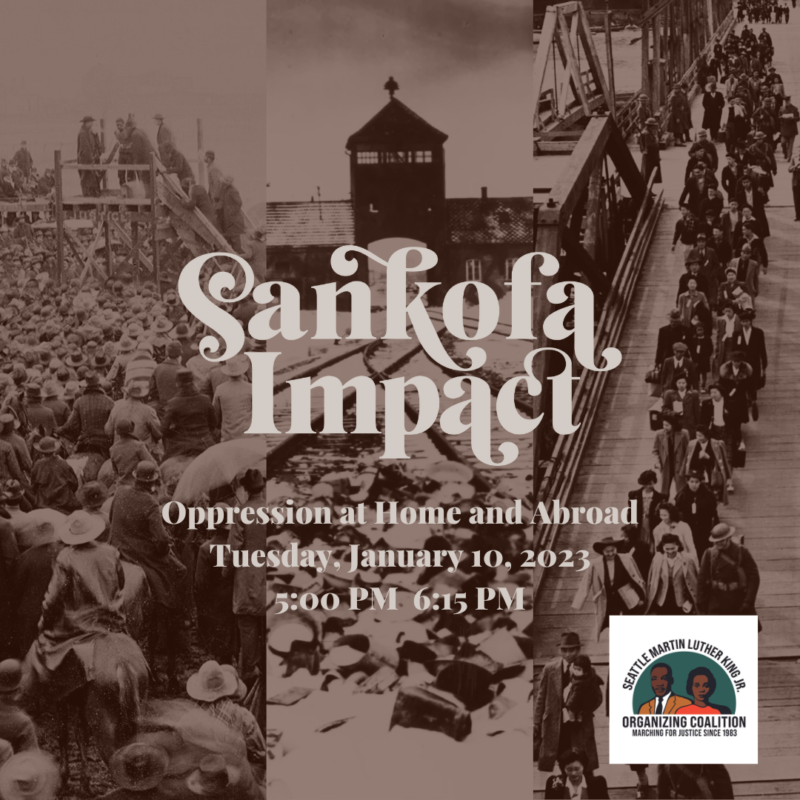
These journeys through Germany and the South with CHOOSE 180 were hugely impactful. In January of this year, Nathan Bean and myself had the honor of presenting these connections at a workshop held by the Seattle MLK Organizing Coalition. We hope to hold more workshops and cultivate spaces where we can further explore the way oppression rhymes.
